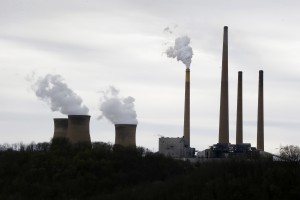Election 2014: Corbett and Wolf differ on approach to Obama's carbon rules
Election day is just a week away. And whoever ends up winning the race for Pennsylvania’s governor will have climate change on their agenda. That’s because states now have to implement new EPA rules decreasing carbon emissions at power plants. But the two candidates are far apart on their approach to reducing the state’s carbon footprint.
The Environmental Protection Agency’s proposed rules would make Pennsylvania reduce its carbon emissions by 32 percent. And that means burning less coal.
Governor Corbett has criticized the EPA’s proposed rules.
“Those are aimed directly at the coal industry,” Corbett told StateImpact. “Right now [the rules are] going to cost Pennsylvanians 6200 miners jobs, tens of thousands of jobs beyond that, but also [they’re] going to cause energy costs to go up because right now in Pennsylvania 40 percent of our electricity today is obtained through coal.”
Corbett won’t say whether he would have the state join a lawsuit challenging those rules. But he does say the EPA has overstepped its authority by not having Congress review the changes.
And he recently signed a law passed by state lawmakers that tipped its hat to the coal industry by delaying the process.
But Corbett’s Democratic opponent Tom Wolf takes a much more pragmatic approach.
“The world is moving toward a lower carbon footprint,” said Wolf at an interview last week at WHYY studios. “And Pennsylvania like every other state is going to have to continue to figure out how to adjust to that. Now, in Pennsylvania’s case, that’s a big challenge. Because coal is a huge, huge part of our economy. It’s a huge source of jobs.”
Wolf says he wants to work with the coal industry to figure out how to produce electricity with a smaller carbon footprint.
States have until June of 2016 to submit a plan to the EPA.

















